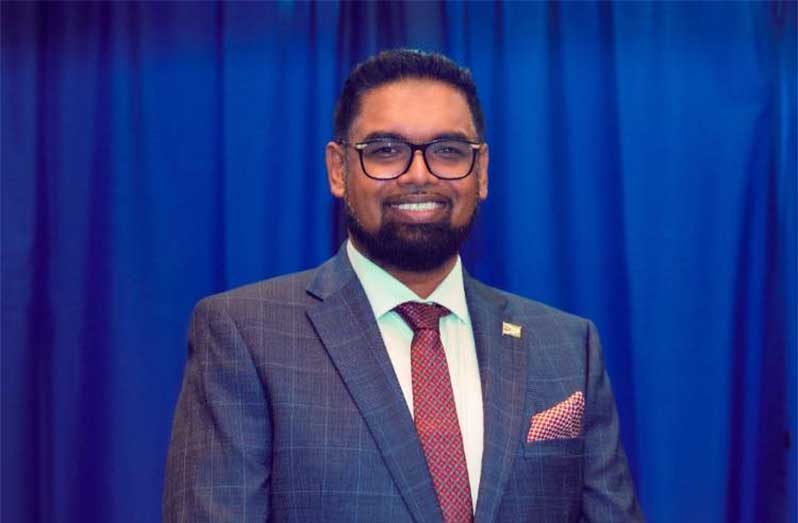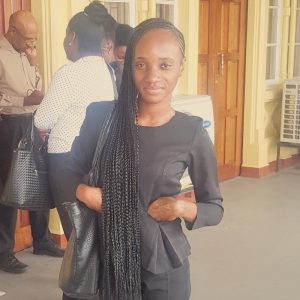—announces decisive steps to tackle excessive gambling, other social challenges
PRESIDENT Dr. Irfaan Ali has reaffirmed his government’s commitment to restoring Georgetown, pledging a comprehensive approach to cleaning up and modernising the capital city.
Speaking at the commissioning of the New Cummings Lodge Water Treatment Plant on Saturday, he said, “Your government is actively pursuing the full rescue of Georgetown. We have to clean it up, fix it up, nice it up, and place it among the most beautiful cities in this region.”
The President emphasised that the restoration process will be accelerated while involving residents in key decisions. “From now, we’re going to start working in an accelerated way, but the people of Georgetown, you will have choices to make, and we want you to walk the long journey with us,” he stated.
Dr. Ali detailed the practical steps planned for the city, starting with infrastructure improvements. “I’ve already directed that the full mapping and condition survey of every drain in the city be done based on GIS [Geographic Information System]. After that, we will launch a massive drainage programme across every street, every alley, every single area in Georgetown.”
He also announced plans to address urban housing challenges, noting, “I’ve asked for a full mapping of all the housing stock in Georgetown, so that we can develop a sustainable urban housing plan that will ensure housing stock issues in the city are dealt with.”
The President further highlighted the importance of recreation and quality of life. “I’ve also asked for a mapping of every recreational facility and a condition survey, so that we can invest in recreation to bring a quality of life in the city that leads to wellness.”
Last month, President Ali announced a plan to rescue Georgetown and restore the city to its historic reputation as the “Garden City”, while advancing sustainable urban development.
The plan outlines 15 landmark demonstration projects that will focus on ‘green’ infrastructure, climate resilience, and the celebration of cultural heritage.
Among the proposals are the transformation of the historic ‘transport building and train station’ into a museum and training centre, the creation of walking trails throughout the city, immediate upgrades to the Stabroek Waterfront, and improvements to key shopping areas.
The ‘Rescue Georgetown’ plan is part of the government’s broader strategy to modernise infrastructure, preserve the nation’s history, and create a vibrant, resilient capital city that inspires national pride, and attracts global recognition.
SOCIAL CHALLENGES
Beyond physical infrastructure, Dr. Ali underscored social and moral development as key pillars of Guyana’s development.
“I’ve asked the Cabinet to work on a programme to engage our churches, our mosques, and our temples on a plan to deal with social challenges in our society; on a plan to deal with civic and moral education, and on a plan to build quality citizens in Guyana, and we will be supporting the implementation of those plans,” he said.
He also addressed social safeguards, specifically gambling, urging citizens to be responsible with their resources. “Social safeguards and safeguarding your resources are important to your life’s development,” President Ali said.
He warned that the government would take decisive action on gambling, stating, “Those entities [gambling shops] have a responsibility to decide now. If you don’t help to fix it, we will have to fix you,” he said, emphasising measures to curb excessive gambling outside the legislation.
At a recent press conference, Vice-President Dr. Bharrat Jagdeo said that the government will soon introduce stronger regulations and higher taxes to address growing concerns related to gambling in Guyana.
He noted that while gambling was once confined to hotel-based casinos, it has now proliferated through mobile apps, causing social problems, particularly among single parents and mothers.
The Vice-President explained that gambling has become accessible on demand, reaching into homes through mobile apps, and noted that the situation has been exacerbated by a very liberal licensing and taxation policy.
“It’s destroying people. If they want to gamble, they can go to the appropriate place, leave their home and travel, not sit at home all day using up their salary or children’s money,” he urged.
Jagdeo noted that with hundreds of gambling outlets in villages across the country, all accessible through mobile apps, the situation is creating a major social problem.



.jpg)









